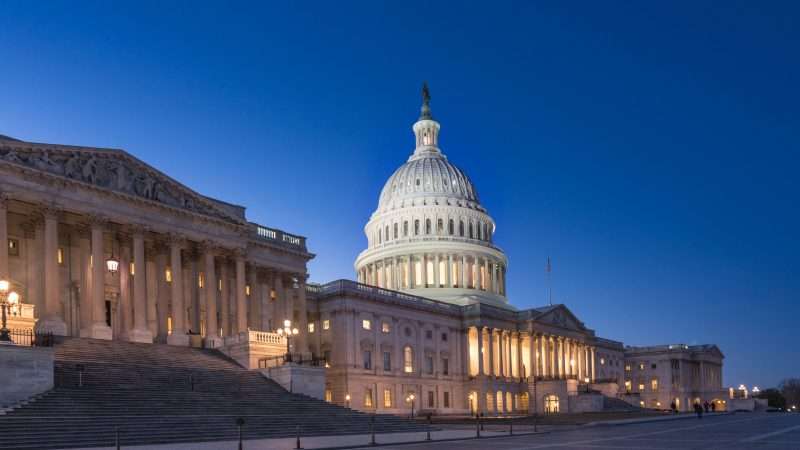
A bipartisan effort to reform or shutter the federal government's massive warrantless spying regime ended, for now, in failure on Thursday morning as Congress approved a temporary renewal of the program as part of a military funding package.
The $886 billion National Defense Authorization Act (NDAA) cleared its final hurdle in the House with a 310–118 vote (73 Republicans and 45 Democrats opposed its passage), less than a day after the Senate approved the bill with an 87–13 vote.
A group of Republicans led efforts in both chambers to remove a temporary reauthorization of Section 702 of the Foreign Intelligence Surveillance Act, which allows federal intelligence agencies to collect communications between Americans and foreigners. Congressional authorization for Section 702 was set to expire at the end of the year, but will now continue until April.
"Extending Section 702 robs Congress of the ability to make reforms now, and likely robs Congress of the opportunity to make reforms any time in the next year," Sen. Rand Paul (R–Ky.) argued on the Senate floor. "That means, once again, the intelligence agencies that ignore the constraints on their power will go unaddressed and unpunished. And the warrantless surveillance of Americans, in violation of the Bill of Rights, will continue."
A bipartisan group of 34 senators supported Paul's motion to strip the Section 702 reauthorization from the final version of the NDAA.
In the House, some conservative lawmakers reportedly slammed new House Speaker Mike Johnson's (R–La.) handling of the NDAA and the reauthorization of Section 702 as a "massive unforced error," according to Axios. Members of the Freedom Caucus were grumpy about the reauthorization of the spying program and a host of less important issues like Pentagon funding for diversity programs and abortion access for members of the military.
Johnson had originally promised to allow a pair of Section 702 reauthorization bills—one with serious reforms and one that aimed to expand the program—to come to the House floor for a debate and vote. That didn't happen. Still, the short-term reauthorization of Section 702 means there will be another opportunity in the early part of next year.
Hopefully, that means the program will get the congressional scrutiny that it desperately needs. Section 702 was created to allow intelligence agencies to spy on foreigners believed to be threats, but it has predictably expanded into a way for law enforcement agencies like the FBI to snoop through Americans' communications without a warrant.
In 2021 alone, the FBI ran more than 3.3 million queries through the Section 702 database, according to a government transparency report. Separately, a 2021 report from the secret federal court responsible for adjudicating Section 702 matters documented 40 instances in which the FBI accessed surveillance data as part of investigations into a host of purely domestic crimes, including health care fraud and public corruption. The program has been used to spy on U.S. senators, protesters criticizing police, and people involved in the January 6 riot at the U.S. Capitol.
Civil libertarian groups like the American Civil Liberties Union (ACLU) and internal government watchdogs have called for changes to the laws that govern how intelligence agencies collect and share their Section 702 data.
The Privacy and Civil Liberties Oversight Board (PCLOB), an independent government agency charged with keeping an eye on post-9/11 domestic spying programs, said the program "poses significant privacy and civil liberties risks." In July, the White House's Intelligence Advisory Board said the FBI's use of the databases created by Section 702 should be limited to investigations dealing with foreign intelligence—and that the FBI's internal controls were "insufficient to ensure compliance and earn the public's trust."
Despite the obvious problems with how Section 702 is used and the growing awareness in Congress that changes must be made, lawmakers this week did what they often do best: They took the easy way out.
"It's incredibly disheartening that Congress decided to extend an easily abused law with zero of the reforms needed to protect all of our privacy," Kia Hamadanchy, senior federal policy counsel for the ACLU, said in a statement after Thursday's vote in the House. "As long as Section 702 is being used by the government to spy on Americans without a warrant, we will continue to fight this unconstitutional law and work with Congress to strengthen our Fourth Amendment protections against government surveillance."
The post Congress Renews Warrantless Digital Spying Program as Part of $886 Billion Spending Bill appeared first on Reason.com.







